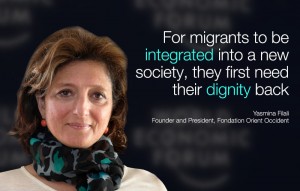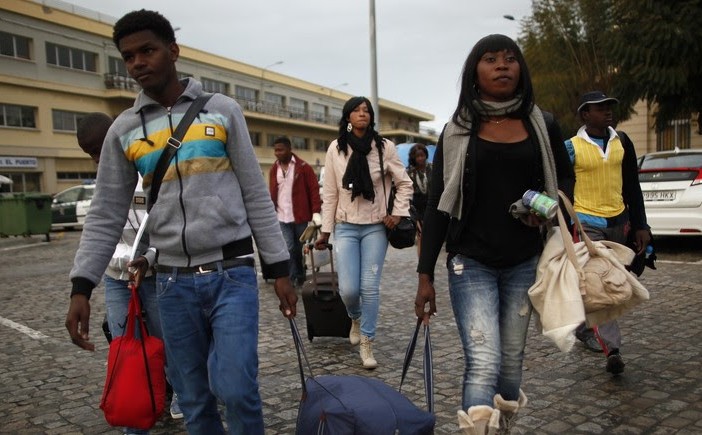World Economic Forum

If you have great ideas and are dedicated enough to follow through with them, you can make a difference’
By Samuel Brown, Community Specialist, Schwab Foundation
Yasmina Filali is founder and president of Fondation Orient-Occident and a 2016 Schwab Foundation Social Entrepreneur of the year. Fondation Orient-Occident is working to integrate underprivileged Moroccans and sub-Saharan African migrants and refugees into Moroccan society by providing them with job training, social and psychological support, and intercultural activities.
How are you making an impact by integrating migrants into Moroccan society?
We have now been working for 22 years, during which Morocco has faced an enormous integration challenge, with the arrival of migrants, firstly from sub-Saharan Africa, and now from Syria. Along with the UNHCR, we created the first big centre for migrants and refugees, which provides social support to over 1,000 migrants per year.
Our model in everything we do – in every workshop, every training, in every class – is to mix migrants with Moroccans, to help them integrate into Moroccan society. Through dialogue, by getting to know people, learning about their culture, we succeed in creating understanding. When you have people work together, to build real projects together, it strengthens the social link.

What needs to happen in the medium term for the Foundation to scale its impact, especially in light of the refugee crisis in Europe?
We are working with countries in Europe to apply lessons from Morocco to what they’re facing. Of course, a lot of other NGOs and international agencies are doing that. Where we really add value is in spreading the model we have developed in Morocco. We’re already doing that in France and Italy. In Italy, we’ll be helping those migrants who stay in the country to integrate. In France, it’s more a question of tackling the issue of Islamic radicalization of the young and vulnerable.
You’re also working with the private sector. What kind of reactions are you seeing there and what types of companies get involved?
The private sector, more and more, wants to make a positive impact when it comes to migration. However, they often don’t have a great deal of expertise as to how to achieve this. So, they’re receptive to partnering with NGOs. We’ve found that things tend to get done faster when you work with the private sector, because they don’t have the levels of bureaucracy you sometimes see in the public sector.
What kind of advice would you have for young people who are inspired by your work and want to act?
You need two things: risk and passion. If you want to be innovative in this field, you have to face risk. We live with risk every day. The risk of having a good idea, the risk of whether people will follow you. If you’re passionate about what you’re doing, you will encourage others to follow you. If you have great ideas and are dedicated enough to follow through with them, you can make a difference.







